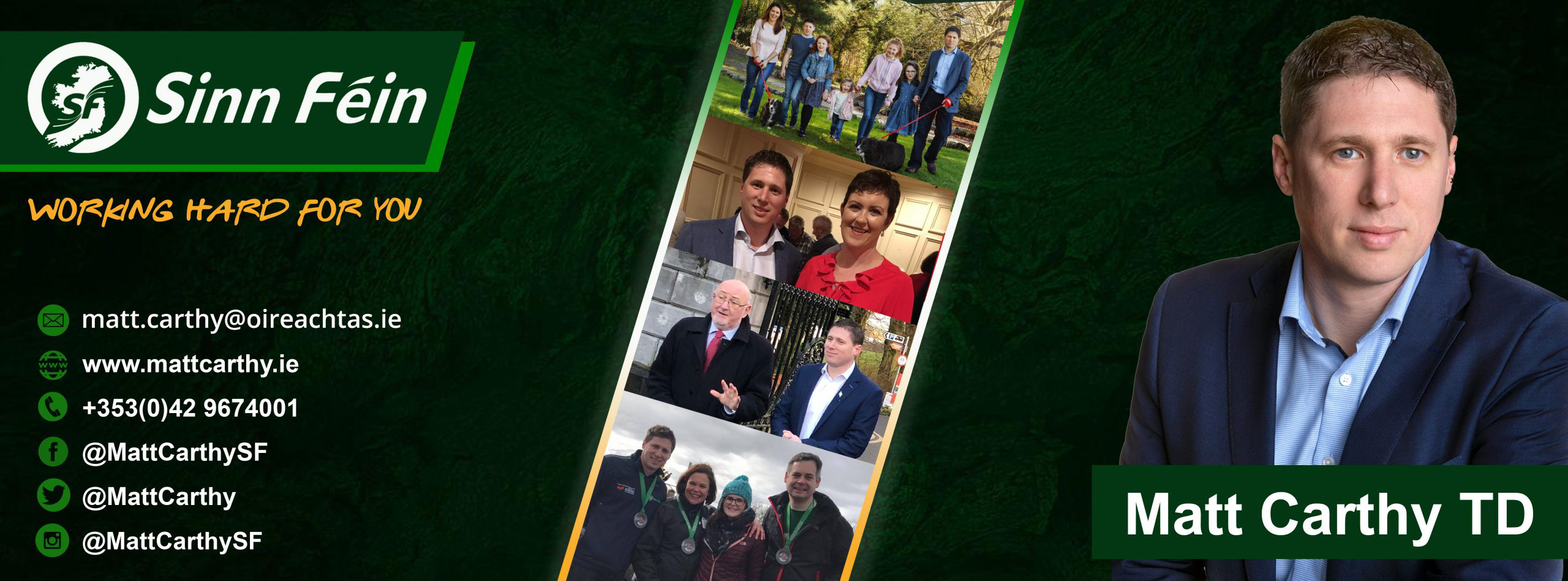Government failure to address role of Meat Plants in Covid spread criticised by local TD
Cavan Monaghan Sinn Féin TD, Matt Carthy, was scathing of the government’s failure to address the role of some Meat Factories in spreading Covid-19 during a Dáil debate. He accused the government of giving meat processing plants a ‘free rein’ throughout the Coronavirus pandemic and suggested that factories found to have failed in their responsibilities to be held financially responsible.
The Sinn Féin Agriculture spokesperson also expressed a belief that the recent cases of a Covid-19 variant first discovered in Brazil were associated with meat plants.
Carthy was speaking during a Dáil debate on legislation regarding mandatory quarantine for international travellers, legislation that Sinn Féin say doesn’t go far enough.
Deputy Carthy said:
“I have never met so many frustrated and angry people as over the past week.
“I have received correspondence and have spoken to people on the telephone who are exasperated. They are exasperated because it has been a year since the first case of Covid-19 entered our shores, yet only today we are talking about, at some point in the near future, putting in place mandatory quarantine for international visitors.
“Even then, it will not be the comprehensive mandatory quarantine system that we know would make a difference.
“Many people have told me that they are willing to put up with the sacrifices they have been asked to make, including their children’s mental health, they will put up with the exasperation in their children’s eyes and frustration among their colleagues.
“They are even willing to close their businesses if that sacrifice on their part is matched by action on the part of the Government.
“It has not been in the areas where it really matters.
“International travel is one area in which the Government has been blind and is steadfast in its refusal to put in place the measures required.
“They have also refused to address the issues in meat factories. I have spoken on countless occasions to the Minister for Health, his predecessor, the current Minister for Agriculture and his predecessor and have pleaded for adequate controls to be put in place.
“At the outset of the pandemic we knew that meat factories were a breeding ground for this virus. We have seen a carte blanche approach and a free rein being given to meat factories to such an extent that I firmly believe the Brazilian variant reported in this country is directly linked to meat factories and that encompasses and represents the inaction and failure of the Government to put in place the protections that are necessary.
“We have heard about six rounds of serial testing in our meat plants. It is clearly not enough. We know that because when it came to the point where the State had almost no cases of Covid, meat factories were ground zero in terms of the re-emergence of the second wave. Time will tell what role they played in the third wave.
“Meat factories are, of course, an essential part of the food production system. That does not and cannot give them the right to wreak havoc. It does not give the Government the right to turn a blind eye.
“I ask the Minister and Cabinet again to put in place the measures that will ensure workers in our meat plants are protected by being tested on a regular basis and that controls are put in place.
“If a meat factory, due to a lack of due diligence, becomes a source of yet another community cluster, the provisions by which the owners of those factories are held financially responsible need to be put in place”.
ENDS
